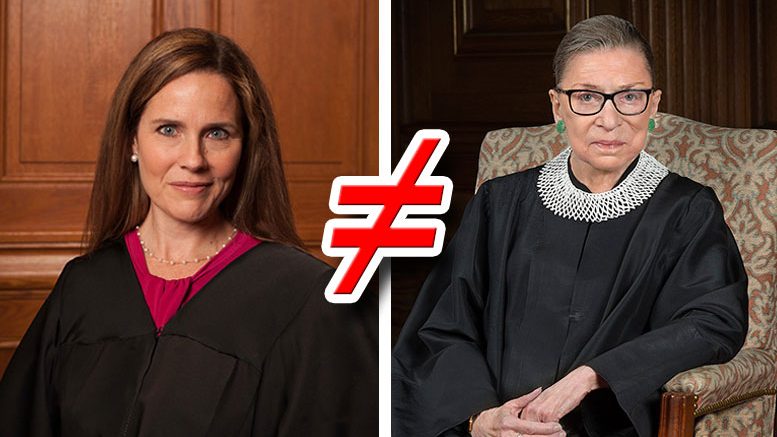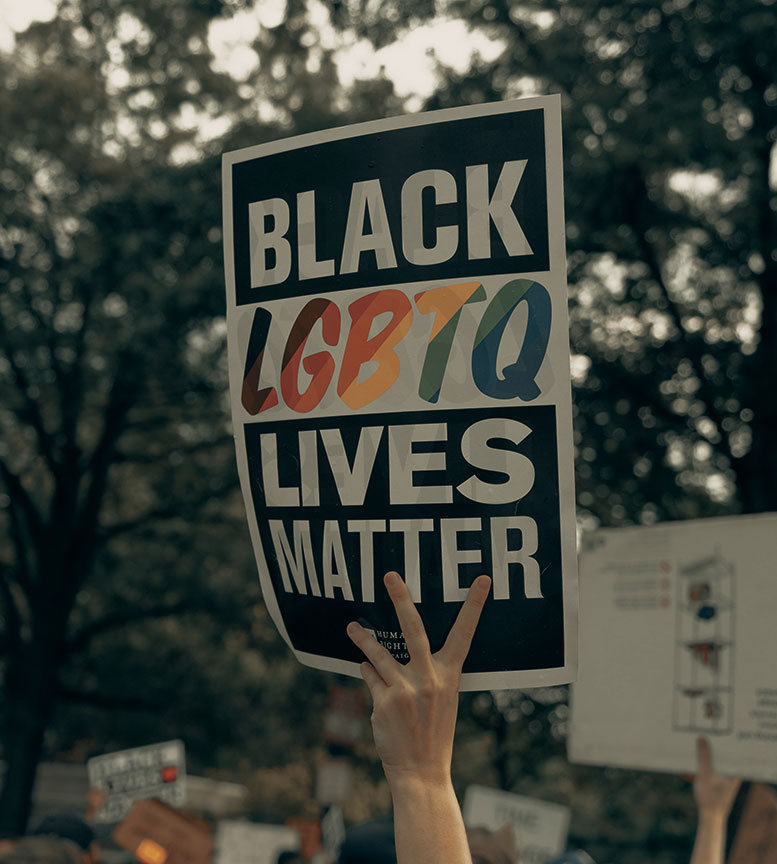Organizations condemn Trump for jumping to replace Justice Ruth Bader Ginsburg; Nomination endangers many groups’ livelihoods, Court’s balance
By: Audrey Cole*/TRT Reporter—
Pres. Trump rushed to announce the nomination of Amy Coney Barrett to replace recently deceased Justice Ruth Bader Ginsburg, even before her burial at Arlington National Cemetery next week, and as elections continue to take place, amid the pandemic.
“President Trump is rushing forward with a process that will only create more polarization and division in our country and damage the credibility of the Court,” said Janson Wu, Executive Director of GLBTQ Legal Advocates & Defenders, via a statement. “While it is the purview of the president to nominate a justice, and of the Senate to confirm, it is also the design of our democracy that the American people have a say in that choice through the regular election of the president and the members of the Senate. Voting is already underway in this election and the nomination of a new Supreme Court justice should be made by the next President.”
After Justice Antonin Scalia’s death in 2016, Senate Majority Leader Mitch McConnell said that no justice should be confirmed in a presidential election year. McConnell has now reversed that position and seeks to rush confirmation of Barrett before the election—a move that is opposed by 57% of American voters.
The ABC News/Washington Post poll found that Americans by nearly a 20-point margin say the next justice of the U.S. Supreme Court should be left to the winner of the presidential election and a Senate vote next year, contrary to GOP plans for a quick nomination by Donald Trump and vote by the current Senate.
“The unseemly rush to approve a new Supreme Court justice just days after Justice Ginsburg’s death is a naked power grab that demeans our country and democracy,” said Imani Rupert Gordon, Executive Director of the National Center for Lesbian Rights, NCLR. “After stealing an appointment from President Obama, Senate Republicans have now abandoned their previously stated rule and seek to jam through a Supreme Court nomination in record time, without even a semblance of genuine process.”
SCOTUS for LGBTQs, other groups
Barrett’s appointment threatens to turn back decades of progress for LGBTQ+ and women’s reproductive rights, transgender rights and protections, healthcare for over 20 million Americans, and many more.
David B. Cruz, Professor of Constitutional Law at the University of Southern California School of Law, told The Washington Post that Justice Ginsburg’s support for LGBTQ+ rights went beyond just that.
“Ginsburg not only played a critical role in voting in favor of LGBTQ rights but also voted to keep religious exemptions within narrow boundaries,” said Cruz to the WP. “Her absence, and her replacement by a conservative justice, could help tip the scale toward curtailing LGBTQ rights.”
Barrett’s threat to landmark decisions
Judge Barrett “has previously made disparaging comments about transgender women, stated that she believes marriage is between a man and a woman, and publicly opposed the outcome in Obergefell v. Hodges, the 2015 Supreme Court ruling that extended the freedom to marry to same-sex couples,” reported a statement by Freedom for All Americans (FFAA),
“ … Justice Ginsburg left a legacy in which she affirmed LGBTQ protections under the law in every legal milestone we have achieved, from striking down laws criminalizing our relationships to extending the freedom to marry, to prohibiting discrimination against us; and those rulings cannot be rolled back or compromised,” said Kasey Suffredini, CEO and national campaign director of FFAA.
In June, the Supreme Court delivered a powerful assertion of LGBTQ+ nondiscrimination protections when it ruled in Bostock v. Clayton County, a groundbreaking United States Supreme Court civil rights case in which the Court held that Title VII of the Civil Rights Act of 1964 protects employees against discrimination because of their sexual orientation or gender identity.
“Judge Barrett’s public positions on LGBTQ issues and her public association with anti-LGBTQ activist groups such as the Alliance Defending Freedom, which opposes marriage equality and has been leading nationwide efforts to banish transgender people from public spaces, is concerning,” said Suffredini.
Upcoming LGBTQ+ cases
On November 4, the court is set to hear oral arguments in Fulton v. City of Philadelphia. In this case, a Roman Catholic Archdiocese of Philadelphia that operated, and still does, a foster care agency in Philadelphia for over 100 years, refused to license married same-sex couples to become foster parents, in violation of the nondiscrimination provisions of a contract into which they voluntarily entered with the City and received taxpayer funds from too. The Catholic Social Service agency and four of its licensed families sued the City of Philadelphia when the City refused to renew the agency’s contract.
The outcome of the case could have broad implications for the application of nondiscrimination laws around the country, as well as for the ability of local governments to enforce all kinds of critical local regulations relating to public health and welfare that keep people safe and healthy, read an FFAA release.
Some other cases that will be heard by the Court in October and November deal with women’s protections and reproductive rights, and the Affordable Care Act (ACA). In California v. Texas and Texas v. California (consolidated for one hour of argument on Nov. 10, per SCOTUS website) the Court will hear arguments on whether the Affordable Care Act’s requirement that virtually every American obtain health insurance is constitutional and, if not, whether the rest of the ACA can survive.
Honoring RBG’s wishes
“A majority of the American people believe Justice Ginsburg’s replacement should be selected by the winner of the next election, which is already underway,” said Rupert-Gordon. “This shameless process is an insult to Justice Ginsburg and to the dignity of the Court. We call on Senators to halt this travesty, respect the wishes of the people, and allow the next president to nominate a new justice to the Court.”
Not honoring Justice Ginsburg’s wishes goes beyond that wish and her work for just every underrepresented group in the U.S.
“Rushing a far-right nominee through a divisive, sham confirmation process before voters have spoken will only undermine both the legislative and judicial branches, and cause irreparable harm to our democracy,” said HRC President Alphonso David. “Under no circumstances should we take away voters’ right to make this choice by nominating, holding hearings for or confirming any judicial nominee before Inauguration Day.
“But this fight is not ours alone. We [the LGBTQ+ community] proudly stand alongside our partners in the racial justice, reproductive rights, and immigrant rights movements and will fight like hell because our lives depend on ensuring we protect Justice Ginsburg’s legacy and install a true ally for freedom, justice, and equality on the Court. Only together, united, can we defeat this president and his attempts to roll back our progress.”
*NOTE: Excerpts of various press releases were also used to write this story.








